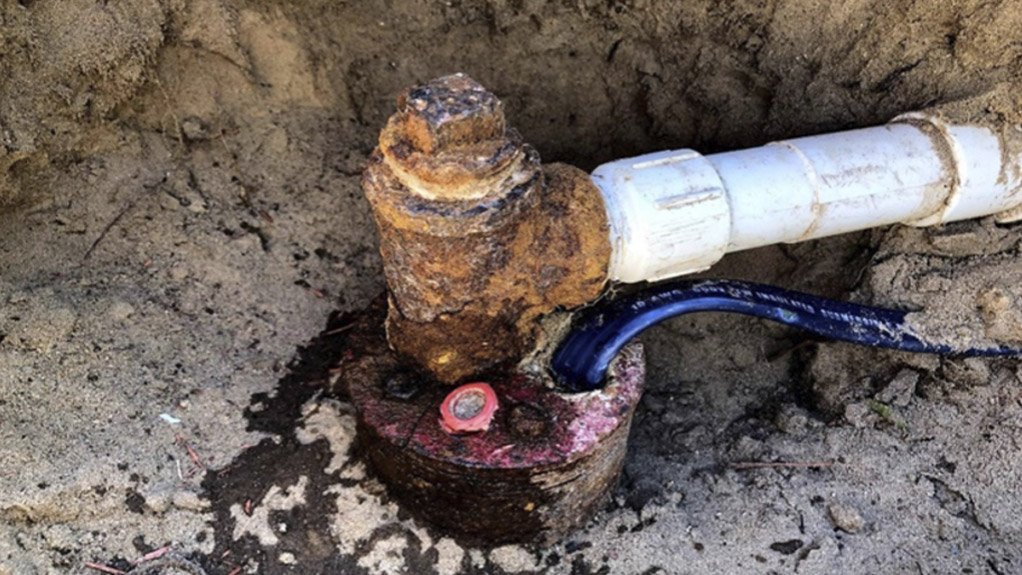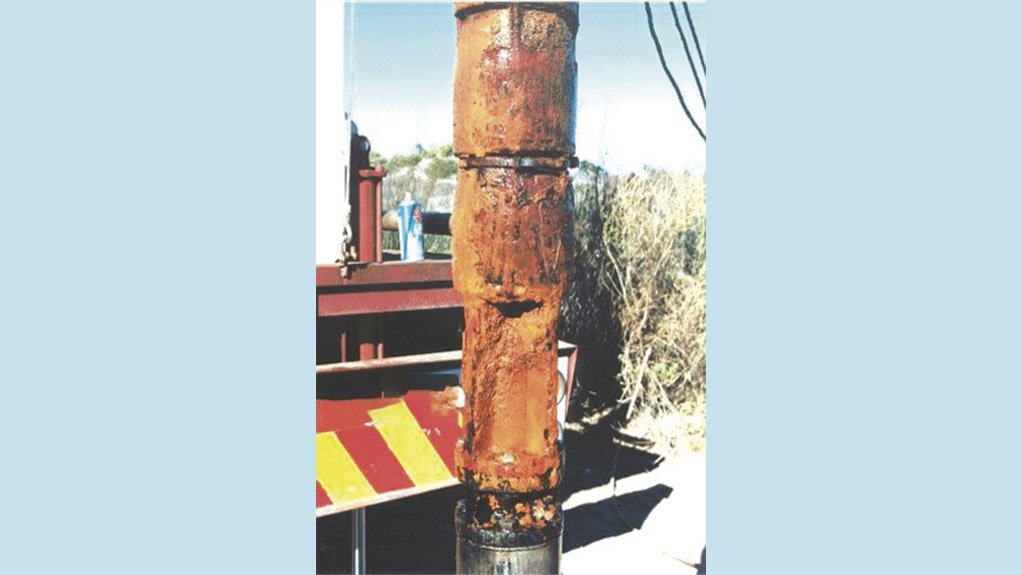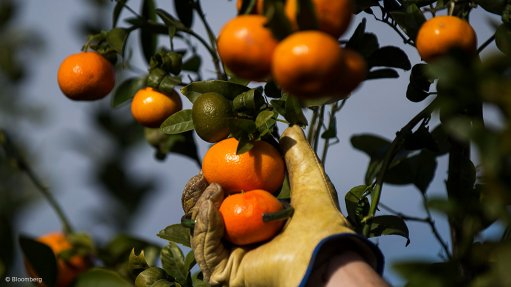In situ iron and manganese removal: a solution for biofouling in groundwater



A clogged borehole in the Atlantis Aquifer Water Supply Scheme (image copyrighted to More Water CC). The reddish coating on the equipment is the result of Fe particles that cause clogging.
By Sameera Mohamed and Lebogang Nhleko
The engineering, environmental, mining and industrial sectors in South Africa and broader Africa are undergoing a dynamic transformation with the emergence of a new generation of young professionals. It has become increasingly clear that bridging technology gaps, providing practical experience opportunities, and nurturing the enthusiasm and innovative spirit of these young individuals are vital for the continued growth and success of these sectors.
About 12% of South Africa’s population resides in exclusively groundwater-dependent settlements. The development of groundwater supply schemes worldwide and in South Africa is threatened by production borehole clogging, as a result of enriched naturally occurring soluble iron (Fe2+) and manganese (Mn2+) in the groundwater. Studies have indicated that the interaction between biological clogging (biofouling) and inorganic Fe/Mn oxide precipitation is the primary cause of iron-related clogging in boreholes. The clogging of water supply infrastructure (borehole screens and pumps, specifically), jeopardises its sustainability as a result of reduced borehole yields and even failed boreholes.
In recent years, in situ iron removal treatment has been investigated for application in the primary Atlantis aquifer in the Western Cape Province. This aquifer is the main contributor to municipal water supply to the towns of Atlantis, Mamre and the Silwerstroom Resort. However, the production boreholes of the scheme have been beleaguered by clogging.
In response, the Council forGeoscience (CGS), funded by the Water Research Commission, developed a groundwater remediation technology that aims to remediate clogging due to Fe and Mn. The CGS envisages this to be the first of many patents envisioned to enhance borehole production. The technology, still under development, has successfully lowered Fe (<0.3 mg/ℓ) and Mn (<0.1 mg/ℓ) concentrations in groundwater to levels within World Health Organisation (WHO) and South African National Standards (SANS) for drinking water.
The technology developed at the CGS entails in situ iron removal (ISIR) using aerated abstracted groundwater as an alternative to costly ex situ remediation measures. ISIR treatment, using ozone as an oxidant (as per the CGS’s technology) is an innovative way to simultaneously treat high Fe levels in groundwater and to remediate borehole infrastructure. The setup, consisting of multiple injection boreholes surrounding the production borehole in a “daisy-wheel” arrangement, was applied at the Atlantis pilot test site.
The technology developed by the CGS has the potential to be applied in different aquifer environments, and is expected to be impactful in improving water security in areas relying on groundwater. The CGS hopes to industrialise the technology and make it more efficient, user friendly and compatible with accessible market-related technologies.
Comments
Press Office
Announcements
What's On
Subscribe to improve your user experience...
Option 1 (equivalent of R125 a month):
Receive a weekly copy of Creamer Media's Engineering News & Mining Weekly magazine
(print copy for those in South Africa and e-magazine for those outside of South Africa)
Receive daily email newsletters
Access to full search results
Access archive of magazine back copies
Access to Projects in Progress
Access to ONE Research Report of your choice in PDF format
Option 2 (equivalent of R375 a month):
All benefits from Option 1
PLUS
Access to Creamer Media's Research Channel Africa for ALL Research Reports, in PDF format, on various industrial and mining sectors
including Electricity; Water; Energy Transition; Hydrogen; Roads, Rail and Ports; Coal; Gold; Platinum; Battery Metals; etc.
Already a subscriber?
Forgotten your password?
Receive weekly copy of Creamer Media's Engineering News & Mining Weekly magazine (print copy for those in South Africa and e-magazine for those outside of South Africa)
➕
Recieve daily email newsletters
➕
Access to full search results
➕
Access archive of magazine back copies
➕
Access to Projects in Progress
➕
Access to ONE Research Report of your choice in PDF format
RESEARCH CHANNEL AFRICA
R4500 (equivalent of R375 a month)
SUBSCRIBEAll benefits from Option 1
➕
Access to Creamer Media's Research Channel Africa for ALL Research Reports on various industrial and mining sectors, in PDF format, including on:
Electricity
➕
Water
➕
Energy Transition
➕
Hydrogen
➕
Roads, Rail and Ports
➕
Coal
➕
Gold
➕
Platinum
➕
Battery Metals
➕
etc.
Receive all benefits from Option 1 or Option 2 delivered to numerous people at your company
➕
Multiple User names and Passwords for simultaneous log-ins
➕
Intranet integration access to all in your organisation


















